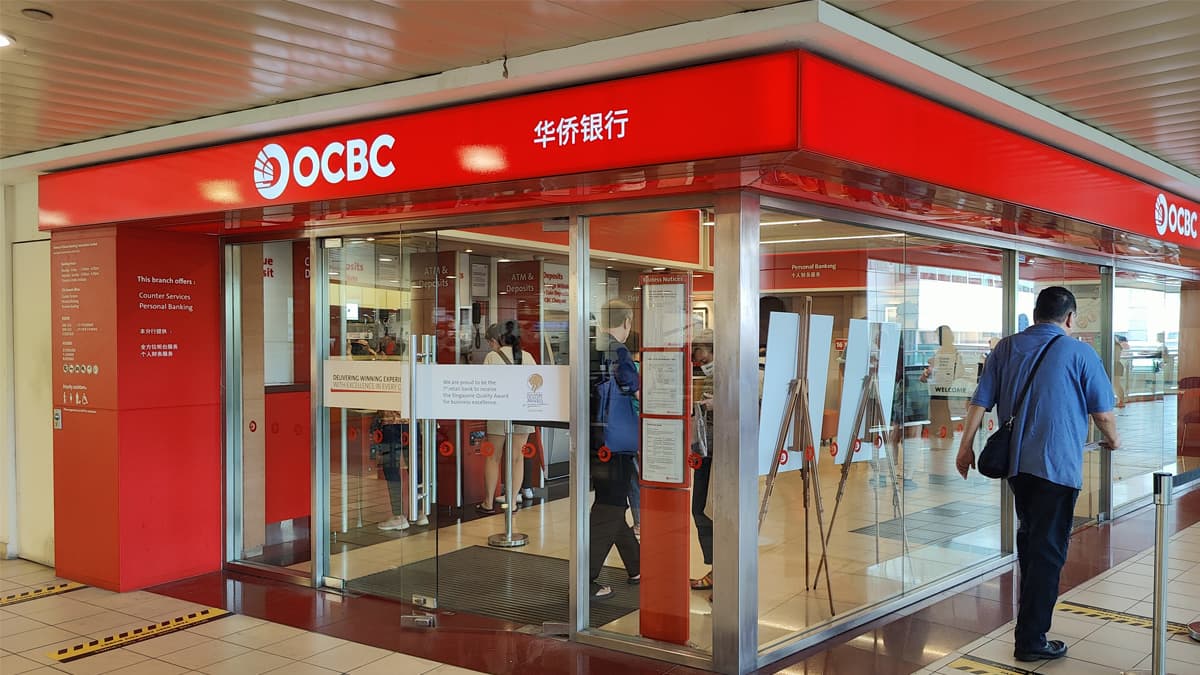Banks to delay or reject large digital withdrawals from high-value accounts from 15 October
From 15 October, Singapore’s major banks will implement new fraud safeguards delaying or rejecting large digital withdrawals from accounts with S$50,000 or more, as part of a broader national effort to reduce phishing scams.

- From 15 October, digital banking withdrawals exceeding half of high-value account balances may be delayed or rejected.
- A 24-hour hold will be triggered if withdrawals exceed 50% of an account with at least S$50,000 (US$38,800).
- The move aims to strengthen fraud safeguards following a national framework and public consultation.
From 15 October 2025, all major retail banks in Singapore will begin delaying or rejecting large digital withdrawals from high-value accounts, as part of a new nationwide safeguard to protect customers against scams.
The measure applies to all digital banking transactions involving current and savings accounts — including joint accounts — with balances of at least S$50,000.
Under the new rule, when a transaction, together with other withdrawals in a 24-hour period, exceeds 50% of the available balance, the bank will either hold or reject the triggering transaction and any subsequent ones.
The transactions will be subject to a 24-hour delay, commonly referred to as a "cooling period", during which customers will be notified via their mobile or internet banking platforms. Banks will provide instructions on how to proceed.
According to the Association of Banks in Singapore (ABS), this “enhanced fraud surveillance” will bolster existing anti-scam protocols.
“Customers may experience delays in digital payments and transfers, including for legitimate transactions,” said ABS, advising account holders to plan time-sensitive transactions in advance.
The initiative will be implemented by seven major banks — DBS, OCBC, UOB, Citibank, HSBC, Maybank and Standard Chartered — and will only affect digital transactions through apps and internet banking. Non-digital channels, including ATM and in-branch cash withdrawals, are exempt.
Response to scam trends and framework
The enhanced safeguards are part of the broader Shared Responsibility Framework co-developed by the Monetary Authority of Singapore (MAS) and the Infocomm Media Development Authority (IMDA). This framework, implemented on 16 December 2024, followed a major scam incident in which nearly 800 OCBC customers lost a total of S$13.7 million to phishing attacks.
Public feedback gathered during the 2023 consultation called for stronger fraud surveillance obligations on financial institutions. MAS and IMDA endorsed the recommendations, aiming to prevent rapid depletion of customer funds by scammers.
In the consultation paper, MAS stated:
“A key objective here is to strengthen financial institutions' fraud surveillance controls to substantially reduce cases of customers having material sums being rapidly wiped out from their accounts without their knowledge.”
Minister of State for Trade and Industry Alvin Tan told Parliament in November 2023 that the framework’s full implementation would “materially reduce” the risk of phishing scams.
How the safeguard works
The 24-hour hold period is designed to serve as a “cognitive break” for potential scam victims, providing a window for them to realise and cancel fraudulent transactions.
If a transaction is legitimate, no action is required and the bank will automatically process it after the holding period. If the customer identifies it as fraudulent, they may cancel it via the bank’s digital platform or contact centre.
In urgent situations, customers can verify transactions via ATMs, branches, or phone. Once verified, transactions that were rejected or held can be reinitiated or processed.
“For urgent larger value transactions, we strongly encourage our customers to plan and make them ahead of time,” said Beaver Chua, head of anti-fraud at OCBC.
To reduce disruptions, recurring standing instructions, GIRO and eGIRO payments, and bill payments to recognised billing organisations will be exempt from the safeguard.
Strengthening defences
Despite a 26% drop in scam cases and a 12.6% fall in losses during the first half of 2025, scams remain a concern. ABS reported that banks collectively prevented S$78 million in scam-related losses in the first seven months of the year.
Further measures are planned, including the use of in-app push notifications for customers who use digital tokens. These alerts will help confirm the legitimacy of calls purportedly made by banks.
“While the safeguards being introduced will step up protection of consumers, the fight against scams ultimately depends on a vigilant and discerning public,” said ABS.











